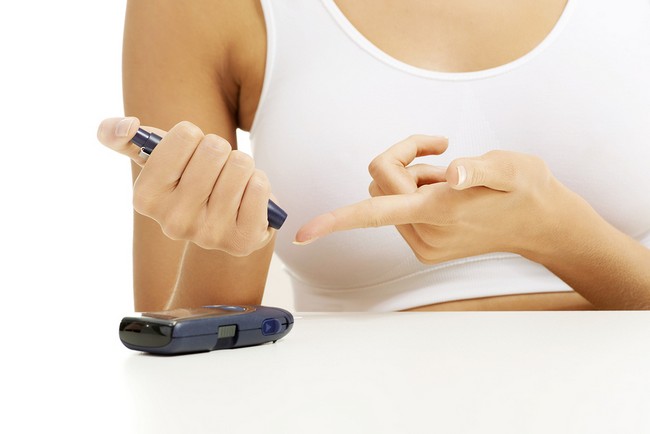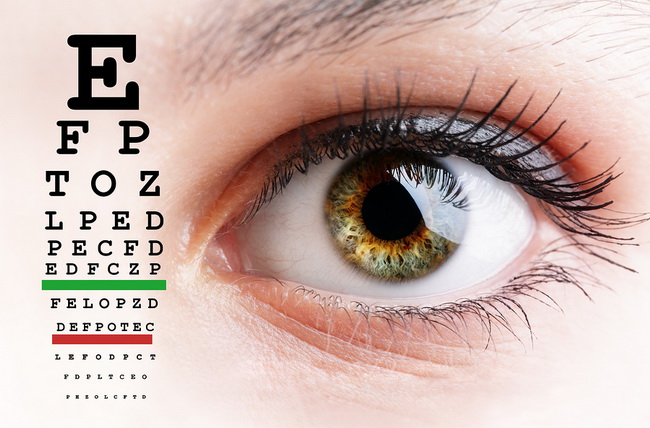- Make It Yourself Lavender Heart-Shaped Bath Bombs!
- 20 Things You Never Knew About “Down There”
- 12 Best Foods For Those Suffering From Arthritis Pain
- 12 Personal Hygiene Mistakes Almost Everyone Makes (Mom Never Told You About #4!)
- 15 Medicinal Plants And Herbs From The Cherokee People
- 12 Mind-Blowing Benefits Of Drinking Coconut Water During Pregnancy
- 12 Outstanding Winter Foods That Won’t Fatten You Up Like A Christmas Turkey
14 Early Warnings Signs Of Diabetes

Photo credit: bigstock.com
In 2014, more than 382 million people worldwide were believed to suffer from diabetes. This metabolic disease is characterized as excessively high levels of glucose (sugar) in the blood. The production of insulin, which the body makes to handle blood sugar, is either reduced or the cells of the body no longer respond to it.
This common, modern day disease initially has very few symptoms and is often overlooked. One out of three people in the early stages of Type 2 diabetes have no idea they’ve developed it. This serious condition has severe complications including neurological and cardiovascular damage if left unchecked.
This is why it is vital that everyone becomes familiar with the early warnings signs of Type 2 diabetes. With a proper diet, exercise, and lifestyle habits, most people can live a normal life without medications or insulin injections.
Keep reading, and learn about the 14 early warning signs of Type 2 diabetes.
1. Changes In The Skin
Several skin changes can occur due to excessive sugar in the blood, including an itchy feeling, especially in the skin around the genitals. Also, a darker skin tone with a velvety type of appearance, known to doctors as acanthosis nigricans, appears on the groin area, the armpits, and around the neck.
2. Frequent Urination
This is often one of the most common symptoms that will send people to the doctor. If you find that you are urinating much more frequently than before, or if you wake up three or more times each night to pee, this could be an early warning sign of diabetes. The kidneys begin to work overtime trying to remove excess sugar from the blood. This is called polyuria.
3. Excessive Thirst
This one goes hand-in-hand with No. 2. Since you are urinating more frequently, your body loses fluids, so you begin to drink more. If you find that you seem to feel thirsty all the time, you should see your doctor, who will call this condition polydipsia.
SEE ALSO: Artificial Sweeteners May Cause Diabetes
4. Tingling In The Hands and Feet
This is a symptom of neuropathy, which is nerve damage, a common complication of diabetes. Numbness or tingling sensations can also be accompanied by feelings of burning or itching and swelling. If glucose levels are not lowered, nerve damage can become permanent.
Continue to Page 2

Photo credit: bigstock.com
5. Frequent Infections
This is another classic sign of diabetes. Sugar feeds infections, and even a minor cut can become badly infected.
6. Bruises That Heal Slowly
This one usually goes hand-in-hand with infection. High levels of blood sugar damage the arteries and veins in the body, which leads to poor circulation. This means blood cannot flow easily to help heal bruises and cuts. If you have very slow healing of bruises or minor cuts, or if you get frequent infections from minor cuts or other injuries, see your doctor.
7. Sexual Dysfunction
Diabetes can damage the blood vessels and nerves in the sex organs as well as the hands and feet. This can lead to sexual dysfunction in both sexes. Women might experience vaginal dryness or an itchy feeling around the vagina. Men will have difficulty achieving erection. Approximately 75 percent of men with diabetes suffer from impotence.
8. Dry Mouth
Although there are other causes for dry mouth, it is a common warning sign of diabetes. Dry mouth is not only irritating, it also becomes a breeding ground for the type of bacteria that causes cavities, gum disease, and bad breath. Gum disease is a common side effect from diabetes because of dry mouth.
Continue to Page 3

Photo credit: bigstock.com
9. Excessive Fatigue
This symptom can occur with numerous other diseases, but we mention it here because it is also a warning sign of diabetes. Fatigue occurs because your body is constantly attempting to compensate for the lack of glucose in the cells, which provide the body with energy. This can also be complicated by the need to get up frequently in the night to pee. Many people find that because they have gotten a poor night’s sleep and are tired, they are also frequently in a bad mood.
10. Weight Loss or Weight Gain
When insulin cannot move sugar into the cells, the body acts as though it is starving. This means that it will start to draw protein from any source it can find, including your muscles. If you find that you have suddenly lost 10 or 20 pounds, or more, over a few months’ time, you should see your doctor right away. Others try to compensate for this lack of energy by eating more sugary foods, causing weight gain. Any unexplained weight loss or weight gain should be investigated by your doctor.
11. Headaches
Although headaches can happen for any number of reasons, if you find that you are getting more frequent headaches, and that they are becoming more severe over time, talk to your doctor. Headaches can develop from elevated blood sugar levels and are well-known early warning signs of high blood glucose.
Continue to Page 4

Photo credit: bigstock.com
12. Vision Problems
Having very high blood sugar also affects our eyesight. It actually changes the shape of the lens of the eye. As a result, your vision can become blurry. You might even see flashes of light or have distorted vision. Caught early, these changes to the eyes can be reversed successfully. If left unchecked, high blood sugar will cause permanent damage to the eyes and possibly even loss of vision.
13. Frequent Yeast Infections
Since bacteria and fungi love living in a sugar-filled environment, it only makes sense that infections are more common, including frequent yeast infections for women. If you suffer from frequent yeast infections, speak to your doctor.
14. Increased Hunger
If you haven’t been exercising excessively, but you suddenly feel ravenously hungry most of the time, this could be due to diabetes. Since your body will experience high blood sugar levels, followed by a crash in blood sugar, your cells will urge you to eat something so that they can get more glucose. This will generally result in weight gain. If you believe you are experiencing hunger levels that seem abnormal for you, or if you are gaining weight rapidly and don’t know why, it’s time to visit the doctor.
Your doctor will administer several tests over a period of a few days to give an average reading that will tell them about your blood sugar levels and insulin levels. Keep in mind that, for many people, Type 2 diabetes is preventable with a healthy diet and exercise program. Talk to your doctor if making simple lifestyle and diet changes can keep you from needing to take prescription medications.
References:

































